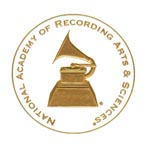 Stanford’s copyright and fair use blog posted a great short interview which points out that one of the main opponents of open access publishing is law students?!! Unlike almost all other academic professions, where journals are peer reviewed and often run by faculty and students, in law the journals are student edited and student run. If law students stand up for open access they can change the citation standards, the norms and even the access to their own journals.
Stanford’s copyright and fair use blog posted a great short interview which points out that one of the main opponents of open access publishing is law students?!! Unlike almost all other academic professions, where journals are peer reviewed and often run by faculty and students, in law the journals are student edited and student run. If law students stand up for open access they can change the citation standards, the norms and even the access to their own journals.
Here is the full interview from Stanford’s Faily Used Blog:
Quick conversation with Erika V. Wayne, Deputy Director of the Stanford Law Library and Lecturer in Law
Minow: Erika, what are your thoughts as a law librarian about the role of law students in suppressing the use of free legal sources, such as court cases and laws that are clearly in the public domain.
Wayne: Authors of law journal articles, like many authors, rely on the vast array of online resources to write and research their works. Yet the student editors on law school journals typically insist on citing to the hard copy of the commercial sources. This is due to the preferences laid out in the Bluebook.
So silly really – student editors insisting on getting their hands on paper copies of sources that the original authors almost certainly only used in e-form — a fiction. What is so tricky and painful for a lot of law libraries is that we end up purchasing certain sources in hard copy only to support this. Indeed, our own faculty and students, when not wearing their editor-hats, will almost all go to the online versions for their own research.
Minow: Who actually writes the Bluebook that imposes the print sources requirement?
Wayne: It’s the students who create the Bluebook – that is the law journal editors at a few top schools.
Minow: What would be your recommendation to law students, and Bluebook editors in particular?
Wayne: The editors could easily loosen the citation preferences and give equal weight to online sources.
All of this being said: the Bluebook isn’t a court’s citation guide. Lawyers practicing in a given court need to comply with a court’s citation rules. The Bluebook is really just a guide or standard for law journals.
But if we talk about changing the way courts and legislatures open up, accept and provide free legal information — about providing new lower cost alternatives for research — the student editors of the Bluebook could lead the charge and rewrite the fiction of citing to paper sources and help train the next crop of lawyers to look to the newer or free legal resources, by giving them the same authority as the traditional commercial research services.


